SUMMARY
This is AI generated summarization, which may have errors. For context, always refer to the full article.
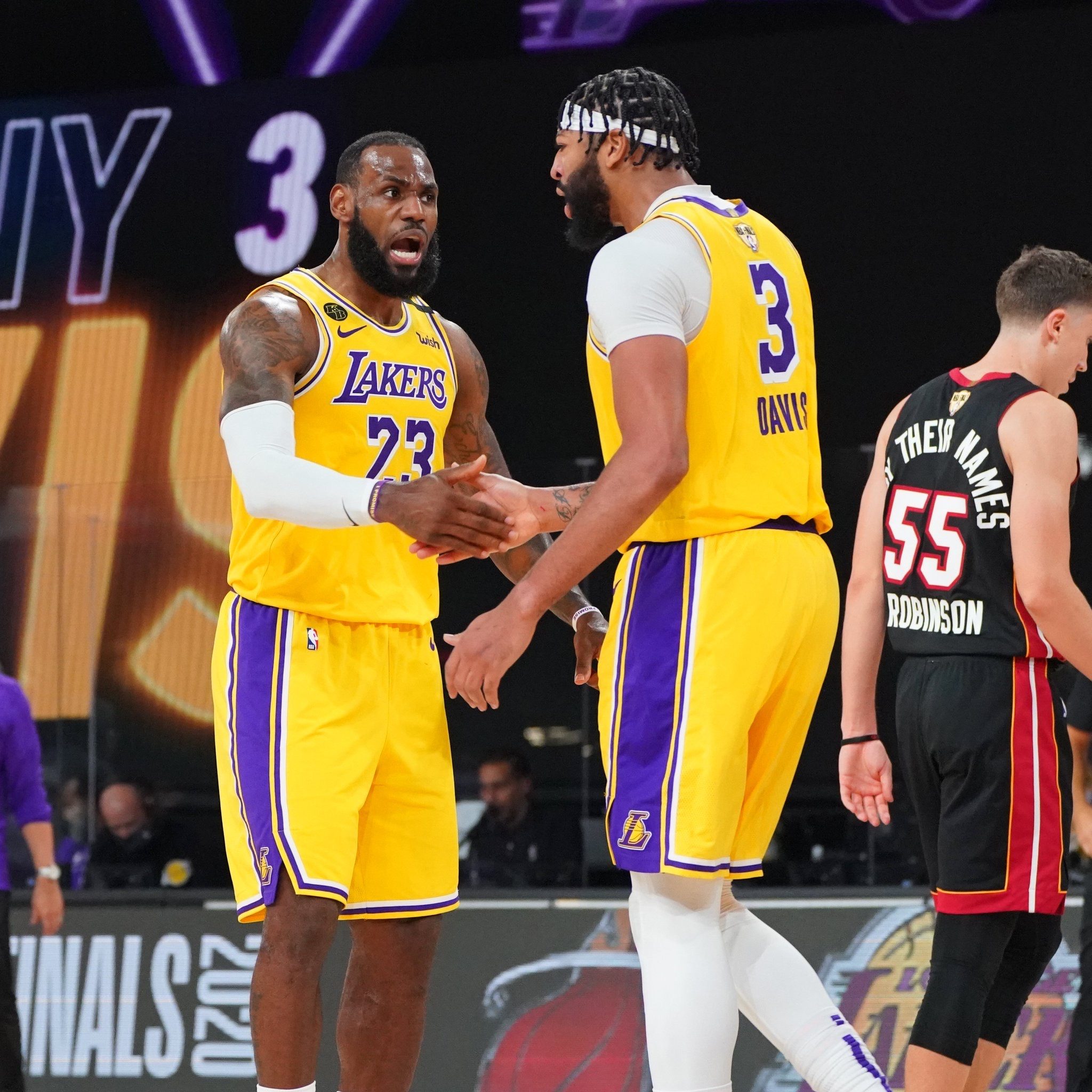
Before Game 1 of the NBA Finals, there was this prevailing sentiment going around that these Finals could be up in the air for anyone to take. Sure, the Lakers were favored by the oddsmakers, and rightfully so. But the Heat had perhaps the toughest road to the Finals and passed every test with flying colors.
On paper, the Lakers had this championship in the bag, with their biggest threats in the Clippers and Bucks being eliminated. But the Heat showed a penchant for crumpling on-paper assessments and throwing them away in the trash. The Heat earned the benefit of the doubt.
Through a 116-98 drubbing of the Heat in Game 1, the Lakers took away that doubt with force and verve.
Coupled with a series of unfortunate events for the Heat, the team seeking their 17th championship in franchise history are now within 3 wins of making that goal a reality.
Lakers survive the Heat’s hot start
The Heat are a team built on bravado and defiance, eager to show everyone what they were made of on the grandest stage. They badly wanted to be the David to the Lakers’ Goliath, and an upset of biblical proportions was on the table early on.
The Heat opened the game with a 23-10 run. Their defense – considered by many to be the stopgap to the Lakers’ championship chances – initially lived up to expectations.
Their offense counted on heavy usage of pick-and-rolls, with Goran Dragic and Bam Adebayo linking up to target Dwight Howard, who was helpless to defend such a combination.
Jae Crowder, who experienced a regression to the mean during the Celtics series in terms of three-point shooting, seemed to return to his anomalous sharpshooting ways by draining 3 long-range bombs in the 1st quarter.
A team looking to win a championship must have resolve in the face of adversity, and the Lakers stood their ground despite the Heat’s hot start.
After going down by as many as 13 points, the Lakers went on a 19-3 run to close out the 1st quarter.
The Lakers suddenly had a three-point lead, and that was all they needed to permanently turn their switch on.
The Heat tried to reestablish their early-game dominance, but the Lakers took the proverbial candy from the baby and licked it dry, never to give it back again.
The Heat’s nightmare scenario
Sports injuries are a fact of life, but that is by no means a consolation to another fact of life: injuries suck. It can be a wrench in many teams’ aspirations. It can give rise to many takes, most of them unfounded and rooted in partiality and resentment. Entertainment value and enjoyment take massive hits.
But they happen – and happen they did to the Heat, at a most unfortunate time.
Dragic proved himself to be a key cog in the Heat’s offense. One could argue that he makes it run, although the Heat pride themselves on equal contributions from everyone. Dragic displayed early on that he was the Heat’s best playmaker on the ball after targeting Howard and making him look lost on defense.
Such a fairytale beginning for him came to an abrupt end when he was forced to go to the locker room on a nondescript injury, which would eventually be revealed as something much worse.
One injury to a key player is crucial. Two of them are often series defining.
Jimmy Butler, on a drive to the rim against Anthony Davis, landed awkwardly on his left foot. An ankle turn, a common yet devastating basketball injury, hobbled him. While he was able to tough it out for the rest of the game, such injuries are often worse when waking up the next morning.
It is tough to predict how such ailments will respond to treatment, but the Heat can only hope that it looked worse than it actually is.
Two key injuries are often enough. But 3 of them are just plain old insults to injury.
Bam Adebayo, the Heat’s rising franchise player, was diagnosed with a strained left shoulder. He left the game in the 3rd quarter and never came back in.
Subsequent X-rays on his shoulder would come back negative, and while he intends to play, that shoulder could become a consistent problem going forward.
The Lakers deserve massive credit
Let us ignore the Heat’s injury misfortune for a bit. The Lakers deserve full credit for this performance.
After going down early, they took a three-point lead after the 1st quarter and eventually ballooned it to an insurmountable deficit for the Heat to overcome.
The Lakers were expected to assert their advantage in this series in several areas. But they asserted it in one area where a lot of people weren’t expecting them to: three-point shooting.
In the first half alone, the Lakers shot 11-of-17 (64.7%) on threes. A league-average three-point shooting team all season long, the Lakers needed shots to fall from the outside, especially with their two superstars garnering a lot of attention on their forays into the paint.
The Lakers eventually cooled off in the second half, but by then it was too late. At halftime, the Lakers had established a 65-48 lead, and they never looked back.
The Lakers, filled with plenty of height and length, lorded over the Heat in points in the paint (46-38) despite not being able to run in transition as much as they would have liked.
But the Lakers had their way in terms of getting to the rim and scoring inside. They used their size to dominate in the rebounding department (54-36), which included 9 offensive rebounds and 16 second-chance points.
Anthony Davis had his way with the Heat, whose penchant for throwing out small lineups came back to haunt them.
With Adebayo in early foul trouble, Davis was placed in his more ideal position as a center. Several seals down low against smaller defenders resulted in easy points and offensive boards. The Heat, devoid of any paint protection without Adebayo on the floor, had no chance against such an elite inside presence.
Davis finished the night with 34 points, 9 rebounds, and 5 assists, on a highly efficient 52.4% field goal, 50% three-point shooting, 100% free throw shooting split.
LeBron James was content on letting Davis take center stage early on, but as the game slipped further away from the Heat and more toward their favor, James began to rack up the numbers and eventually finished with a near triple-double: 25 points, 13 rebounds, and 9 assists.
“(The Lakers) have guys at the point of attack in James and Davis that are going to break your defense down and make plays over the top,” Spoelstra said. “You have to be extremely disciplined and stay with it.”
The Lakers’ supporting cast did their part. Danny Green finished with 11 points, 9 of them from crucial three-point shots.
Kentavious Caldwell-Pope carried his hot shooting from the Conference Finals into the first half of Game 1 and eventually finished with 13 points.
Alex Caruso did what was expected of him and more, finishing with 10 points off the bench.
The Heat had trouble against the swarming defense of the Lakers. Their motion offense predicated on ball and player movement as well as perimeter shooting was stifled by the Lakers’ combination of length, versatility, and raw effort – all trademarks of a Frank Vogel-coached defensive system.
“Our guys are just hustling their tails off,” Vogel said. “(They’re) flying around on the defensive end and (putting) effort on offense as well. Really pushing the tempo on the break, attacking the paint, and crashing the boards. The pace of the game really picked up in those two quarters and obviously those were the difference makers.”
The Lakers were extremely efficient on both ends, putting up an offensive rating of 118.4 points scored per 100 possessions, while having a defensive rating of 101.0 points allowed per 100 possessions.
Simply put, those are championship-winning numbers.
The Heat will have much ground to make up for, and with several uncertainties concerning their ability to generate offense and establishing a defensive stronghold against a two-way monster such as the Lakers – in addition to the uncertainty of the injuries they have suddenly piled up – the future is looking rather bleak for them.
What looked like an uphill climb for the Heat has suddenly turned into a hulking Mt Everest. And the Lakers are more than willing to pile on an avalanche to throw them off their path toward the peak. – Rappler.com
Add a comment
How does this make you feel?
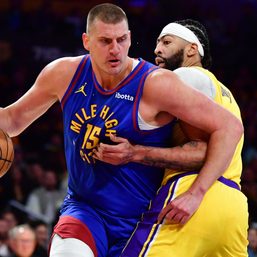
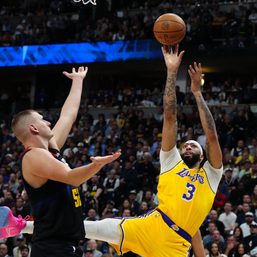
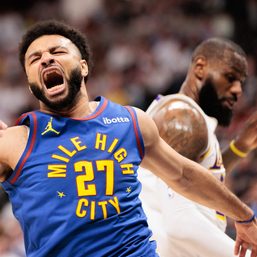
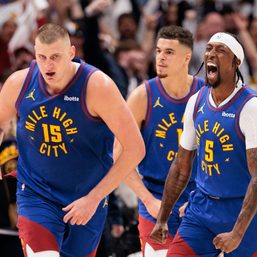
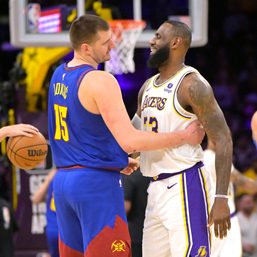
There are no comments yet. Add your comment to start the conversation.